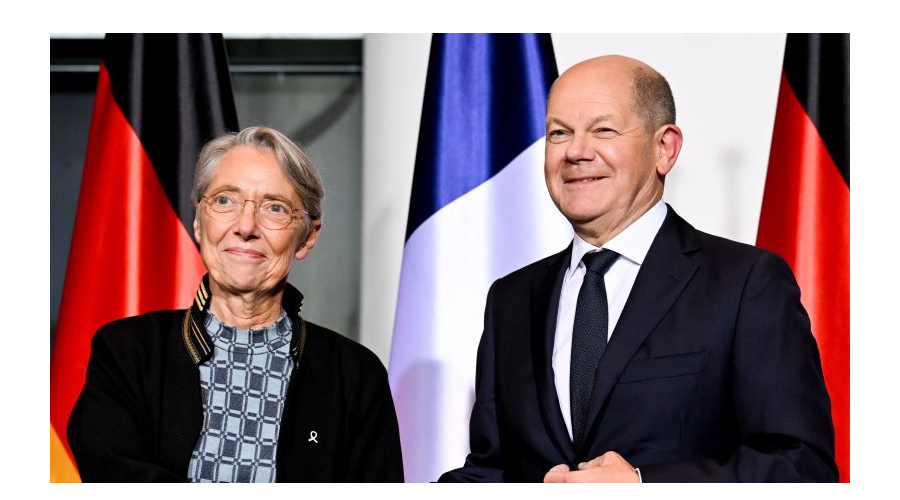
Germany and France appear to have set their differences on hydrogen regulation aside as part of wider efforts to resolve simmering tensions between the EU’s two largest countries.
Hydrogen is expected to play a critical role in decarbonising industries like steelmaking and chemicals, with the European Commission planning 10 million tonnes of domestic renewable hydrogen production and 10 million tonnes of imports by 2030 to replace fossil gas.
However, France and Germany have clashed over EU rules that will govern the future production of renewable and low-carbon hydrogen in Europe.
At the heart of the dispute is the definition of “renewable” hydrogen against “low-carbon” hydrogen, which also includes fuels produced from nuclear power or natural gas with carbon sequestration technology.
France has insisted on recognising hydrogen made from nuclear electricity as green under the EU’s revamped Renewable Energy Directive, an idea firmly rejected by Germany, which said nuclear had no place under the directive.
Now, their differences appear settled. On Friday, the two countries published a “political declaration” affirming Franco-German solidarity on a range of energy issues, including hydrogen regulation.
The joint statement said the two sides will “respect each country’s technology choices on electricity mix” and then “find a solution on how to reflect this common understanding in current legislative dossiers, including in the gas [and hydrogen] package”.
The Czech EU presidency seized on this détente, and put forward a compromise proposal for the gas package, which reflected the key interests of France and Germany in the European hydrogen debate.
A new article 8a proposed by the Czechs raises the “possibility to use low-carbon hydrogen and low-carbon fuels in decarbonisation objectives,” reflecting France’s wish to count hydrogen made from nuclear towards its climate objectives.
“Member States may take into account low-carbon fuels of non-biological origin, including low carbon hydrogen,” reads the proposed draft, seen by Contexte, a specialised news site.
It then creates a provision through which low-carbon hydrogen may be counted “as a complement” to national targets on greenhouse gas reduction and renewable fuels of non-biological origin (RNFBO) referred to in the EU’s revamped renewable energy directive.
For the German side, the Czechs introduced a new provision excluding low-carbon hydrogen from being labelled as a “renewable” energy source.
“Low-carbon fuels of non-biological origin shall not be labelled, nor advertised, as renewable fuels of non-biological origin,” the new paragraph reads, adding that EU countries have a duty to ensure that labelling enables consumers to make an informed choice on whether to go for low-carbon or renewable fuel.
The settlement, which came after months of tensions, was welcomed as a breakthrough by France.
Read the most up to date Fuel Cell and Hydrogen Industry news at FuelCellsWorks
“Our two countries need each other,” said French Prime Minister Elisabeth Borne on Friday (25 November) in Berlin. “We want to advance decarbonised energy production in our countries, so that investments in the energy carriers of the future, such as hydrogen, are also increased,” she added, with a nod to the agreement signed beforehand.
Photo source: EPA-EFE/FILIP SINGER
SOURCE: EURACTIV




